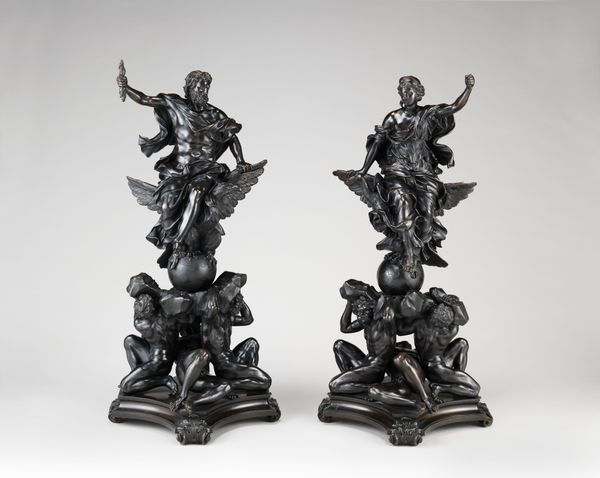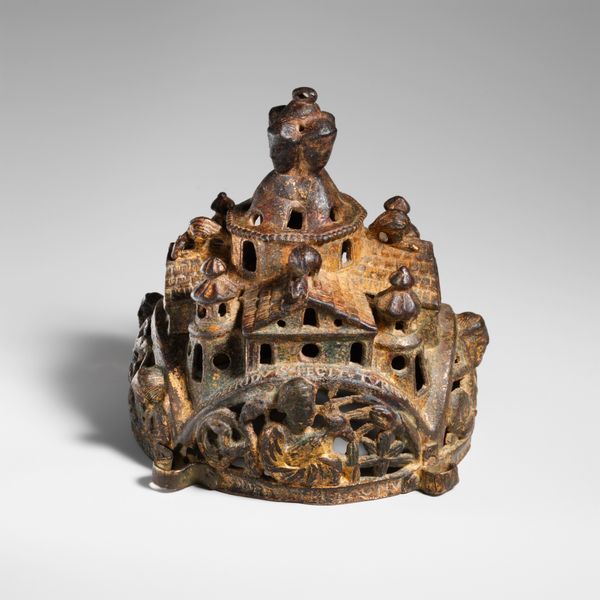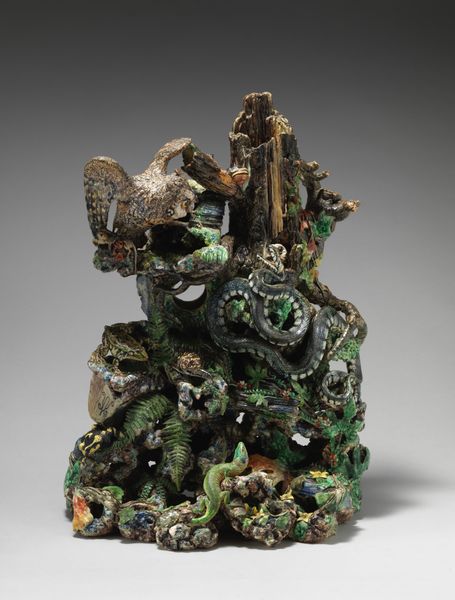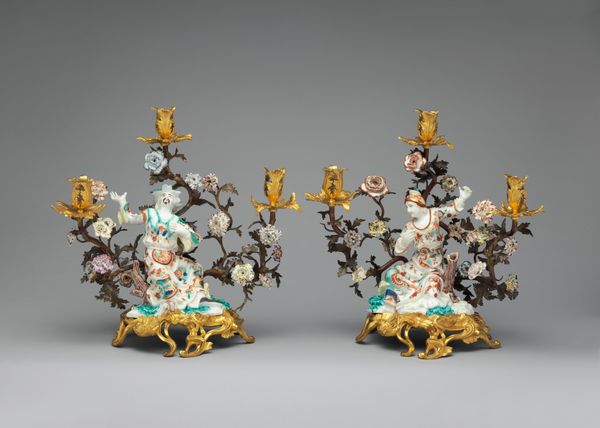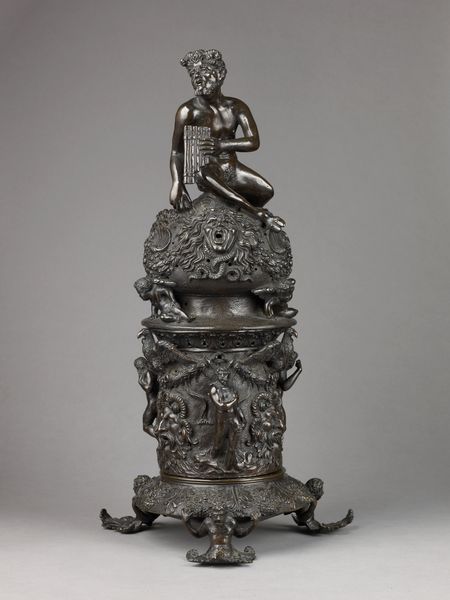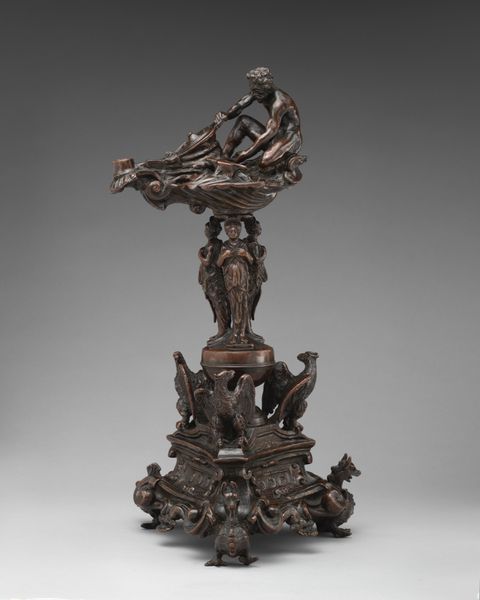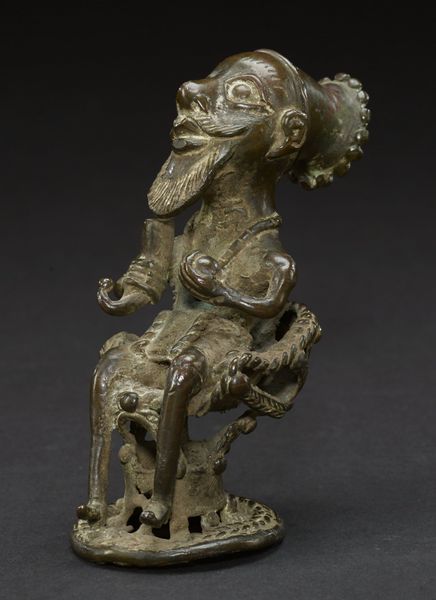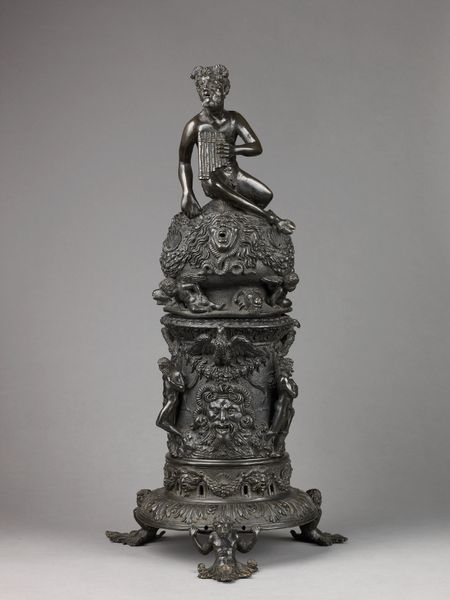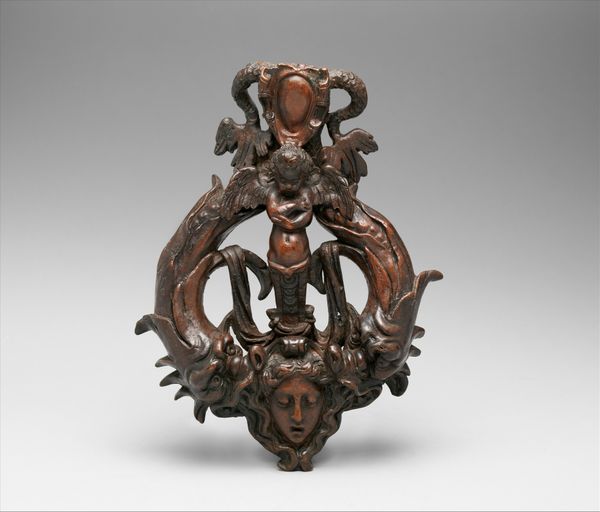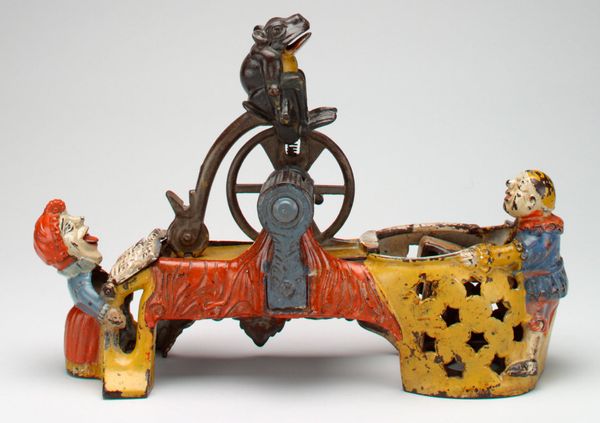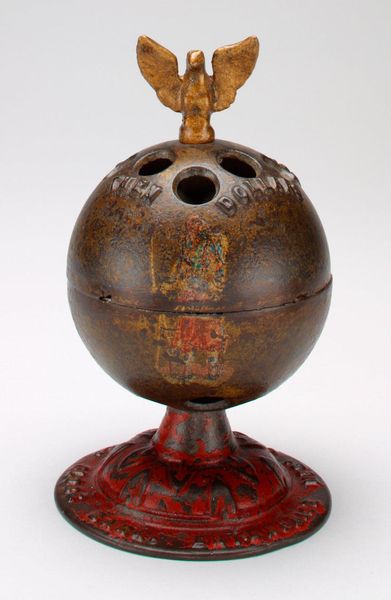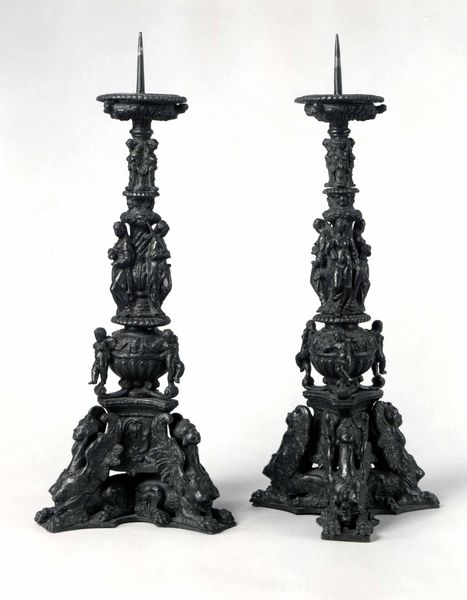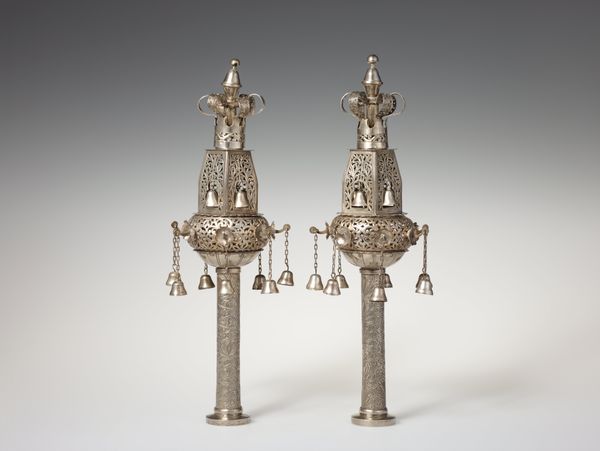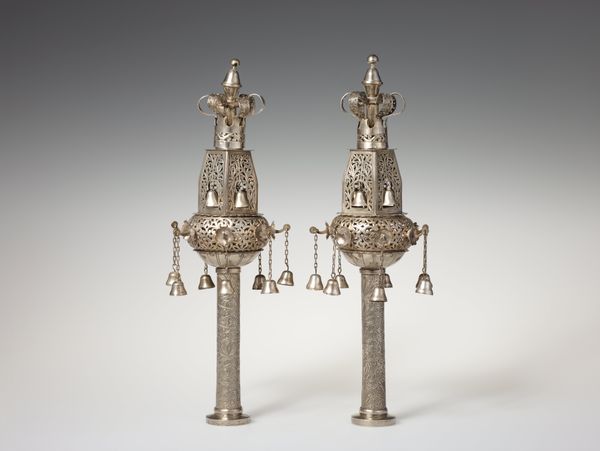
metal, sculpture
#
baroque
#
metal
#
sculpting
#
geometric
#
sculpture
#
horse
#
decorative-art
Dimensions: Height (each): 23 1/2 in. (59.7 cm)
Copyright: Public Domain
These andirons were made in England by Stephen Pilcherd, who was active in the late 16th and early 17th centuries. Andirons such as these were functional objects used to support burning wood in a fireplace, but they were also important displays of wealth and status. The coat of arms at the top identifies these andirons as having been made for the royal family of England. The Tudor rose and fleur-de-lis designs are visual markers associated with royalty, and with elite taste. By the 17th century, the royal family was an important patron of the arts, and objects like this served as advertisements for the power and sophistication of the monarchy. At a time of political tension and outright revolution, these andirons visually construct a story about the naturalness and inevitability of royal power. Historical records, design manuals, and inventories of royal collections can tell us more about how objects like this operated in their original context. We can understand how art participates in the social and political world.
Comments
No comments
Be the first to comment and join the conversation on the ultimate creative platform.
